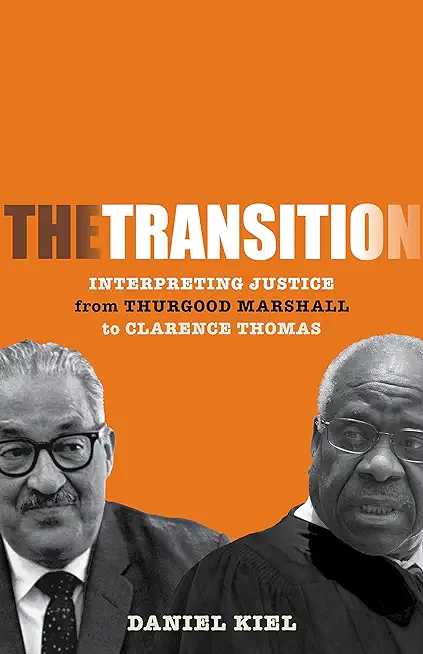
Kiel, Daniel
In their lives, Thurgood Marshall and Clarence Thomas experienced the challenge of living and learning in a world that had enslaved their relatives and that continued to subjugate members of their racial group. On the Court, their judicial writings--often in concurrences or dissents--richly illustrate the ways in which these two individuals embodied these crucial American (and African American) debates--on the balance between state and federal authority, on the government's responsibility to protect its citizens against discrimination, and on the best strategies for pursuing justice. The gap between Justices Marshall and Thomas on these questions cannot be overstated, and it reveals an extraordinary range of thought that has yet to be fully appreciated.
The 1991 transition from Justice Marshall to Justice Thomas has had consequences that are still unfolding at the Court and in society. Arguing that the importance of this transition has been obscured by the relegation of these Justices to the sidelines of Supreme Court history, Daniel Kiel shows that it is their unique perspective as Black justices - the lives they have lived as African Americans and the rooting of their judicial philosophies in the relationship of government to African Americans - that makes this succession echo across generations.







